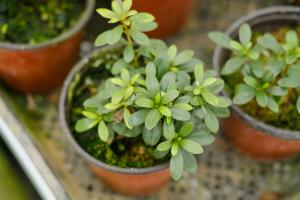Does Israel Actually Need More Trees Planted?
Israel is known for its arid climate and limited amount of natural resources. More than half of the land in Israel is desert, and water shortage is a perennial issue. In such a situation, the idea of planting more trees sounds both counterintuitive and curious. Does Israel actually need more trees planted?
The importance of trees
Trees have been vital for life on this planet for millions of years. They provide oxygen, absorb carbon dioxide, stabilize the soil, and provide habitat for animals. In a region like the Middle East, where the climate is harsh and dry, trees play an even more crucial role. They help balance the local climate, provide shade, and reduce heat levels. In addition, trees have economic, cultural, and aesthetic value, making them valuable assets to any society.
Israel's afforestation efforts
Despite its challenging environment, Israel has a long history of forestry and afforestation. Since the creation of the state in 1948, Israel has planted millions of trees in different parts of the country, especially in the north and south. The mission was initially to combat desertification and create green forests, but over time, the focus has shifted towards developing urban parks, recreational zones, and greenbelts. The government of Israel and various non-governmental organizations have been active in promoting tree planting throughout the country, encouraging citizens to participate in afforestation drives, and funding research on drought-resistant and indigenous tree species.
The benefits of planting more trees in Israel
Planting more trees in Israel can yield many benefits, both ecological and socio-economic. One of the most apparent benefits is the improvement of the local climate. By creating green spaces, trees can significantly reduce urban heat, which is becoming a critical issue in many Israeli cities. In addition, trees can help mitigate air pollution, which is another challenge faced by many urban areas in Israel. Moreover, trees provide shade and contribute to a healthier outdoor environment, which can encourage people to spend more time outside and lead to better mental and physical health. Trees also have economic benefits; they can help regulate the local water table, improve soil fertility, and create job opportunities for those engaged in forestry and agriculture. Finally, trees have cultural and aesthetic value and can become an important part of Israel's identity and heritage.
The challenges of planting more trees in Israel
Despite the benefits of planting more trees in Israel, there are several challenges to achieving this goal. The primary challenge is water shortage. Trees require significant amounts of water to grow, and in many parts of Israel, there is simply not enough water to support afforestation. The government and NGOs have been working to develop drought-resistant tree species and promote water-saving technologies, but the problem remains. Another significant challenge is finding suitable land for planting. Many areas in Israel are already densely populated or used for farming, making it difficult to find space for planting trees. Finally, there is the issue of maintenance. Trees require regular care and attention, especially in their early years, and ensuring that they are adequately cared for is a significant undertaking.
Conclusion
In conclusion, Israel can benefit greatly from planting more trees, both environmentally and socio-economically. However, there are significant challenges that need to be addressed, primarily related to water shortage, finding suitable land, and maintenance. Nevertheless, Israel's long history of successful afforestation and ongoing research and innovation in the field of forestry indicate that there is potential for further development.

 how many times do yo...
how many times do yo... how many planted tre...
how many planted tre... how many pine trees ...
how many pine trees ... how many pecan trees...
how many pecan trees... how many plants comp...
how many plants comp... how many plants can ...
how many plants can ... how many plants and ...
how many plants and ... how many pepper plan...
how many pepper plan...































